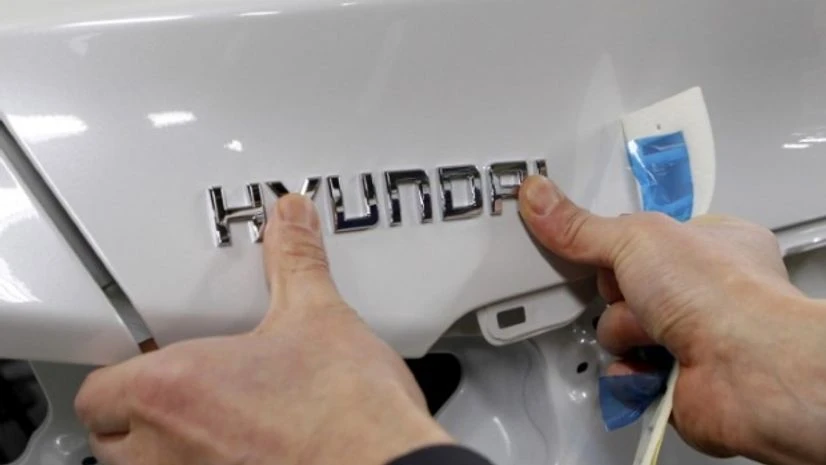South Korea's new antitrust chief said he has been in talks with the autos-to-steel conglomerate Hyundai Motor Group about overhauling its complex ownership structure, which critics say gives too much power to its controlling family at the expense of shareholders.
Kim Sang-jo, appointed to head the Korea Fair Trade Commission by President Moon Jae-in, told Reuters that Hyundai's web of cross shareholdings among its group affiliates has resulted in a "big governance risk" for South Korea's second-largest conglomerate, which is run by its 79-year-old chief, Chung Mong-koo.
"Many people, including me, are telling Hyundai that they shouldn't waste more time before dissolving cross shareholding," said Kim, who has been nicknamed "chaebol sniper" for his shareholder activist campaigns targeting South Korea's powerful family-run conglomerates. "I'm in ongoing conversations with Hyundai."
Shares of key Hyundai group companies rose following the report, with Hyundai Motor gaining 2.4 percent and Hyundai Mobis gaining 2.6 percent, outperforming the overall market's 0.1 percent decline.
In his first interview with foreign media since taking office in June, Kim also said South Korea's antitrust watchdog is looking into competition issues regarding Google's Android mobile operating system, and has had conversations with the European Commission.
The European Commission last year charged Alphabet's Google for using its dominant Android system to shut out rivals, and is weighing a record fine that could come by the end of the year, Reuters reported in July.
In South Korea, the Android operating system has a 74 percent market share, and industry officials have questioned whether Google used its mobile dominance to prevent South Korean companies such as Samsung Electronics from developing their own operating systems.
More From This Section
The South Korean regulator, which in December fined Qualcomm Inc 1.03 trillion won ($854 million) for what it called unfair business practices in patent licensing and modem chip sales, is also co-operating with its European counterpart on its own investigation into Qualcomm over related issues, Kim said.
Hyundai and Qualcomm declined to comment. The European Commission and Google did not immediately respond to calls for comment.
LAST MAN STANDING
Kim is the architect of chaebol reform pledges made by Moon, who came into office after a snap election in May to replace Park Geun-hye, impeached over a corruption scandal that exposed the cosy ties between government and chaebol.
At the heart of the governance conundrum are the interlocking shareholdings among group companies held by their founding families, which mean that if one affiliate goes insolvent, another affiliate will often be forced to come to the rescue.
It has been cited as a major factor behind the so-called "Korea Discount" - meaning their shares are typically undervalued in comparison to global peers.
In Hyundai's case, its chairman, Chung, controls the sprawling conglomerate with only small stakes in key affiliates including the automaker Hyundai Motor and parts supplier Hyundai Mobis.
Kim said that Hyundai has stayed put even as many of South Korea's top conglomerates have moved to unwind cross-shareholdings in recent years.
"I can tell you clearly that Hyundai recognises it can't live with its current circular shareholding structure forever," he said. "It won't be done overnight, but the company is currently trying to find solutions."
He added: "Hyundai would be stupid if it didn't know the expectations of the market and the government."
The chaebols, which have long dominated Asia's fourth-largest economy, have also come under scrutiny over intra-group business deals that favour affiliates owned by family members at the expense of third-party competitors.
Kim said his agency had recently identified "several" chaebol group companies for abusing intra-group deals, and planned to launch formal investigations into some of them.
Hyundai Glovis, a logistics affiliate of Hyundai Motor, is one of a handful of companies found to have frequently used intra-group transactions, Kim said, declining to provide other names.
TROUBLES AT SAMSUNG
Kim recently testified as an expert witness for prosecutors in their bribery case against the Samsung Group leader Jay Y. Lee, who has been jailed since February on charges that he bribed Park, the former president.
Lee, who faces a court ruling on Friday, denied any wrongdoing as prosecutors sought a 12-year jail term this month on charges that include embezzlement and perjury.
Kim expects Lee's troubles will paralyse group-wide decision-making and create "serious problems" for ailing affiliates, such as the struggling shipbuilder Samsung Heavy, although the impact may be limited on crown jewel Samsung Electronics.
"The verdict will have significant implications for Samsung's future," he said.
Samsung declined to comment.
Kim said he would focus on stricter enforcement of existing laws, such as using his agency's investigation powers, rather than pursuing drastic legislative changes that could fail in parliament where Moon's ruling party does not have the majority.
"President Moon is taking a lesson out of the failure of chaebol reforms under the former liberal administration," Kim said, referring to the unsuccessful reform efforts under the administration of Roh Moo-hyun, who served as president between 2003 and 2008.
($1=1,139 won)

)
